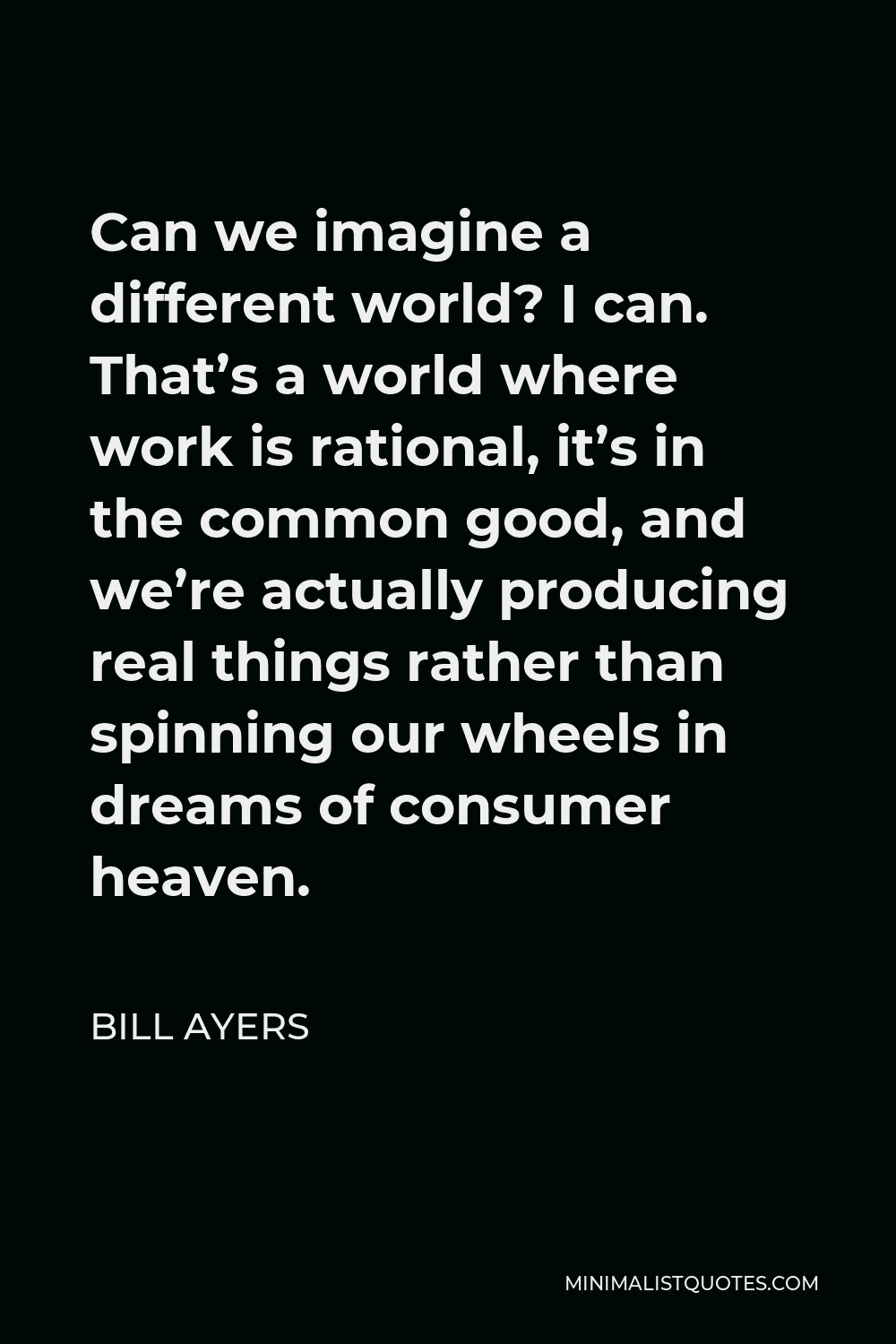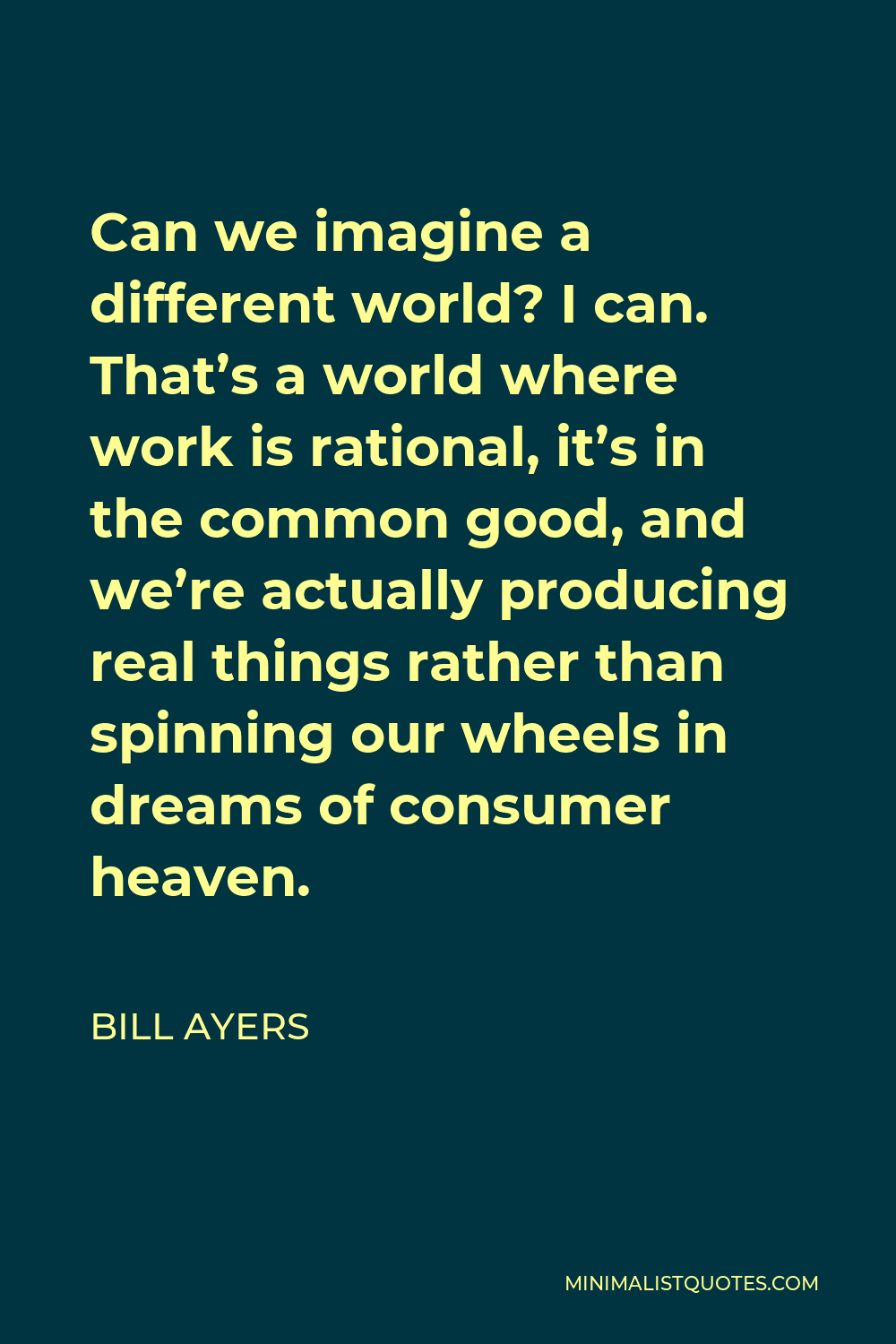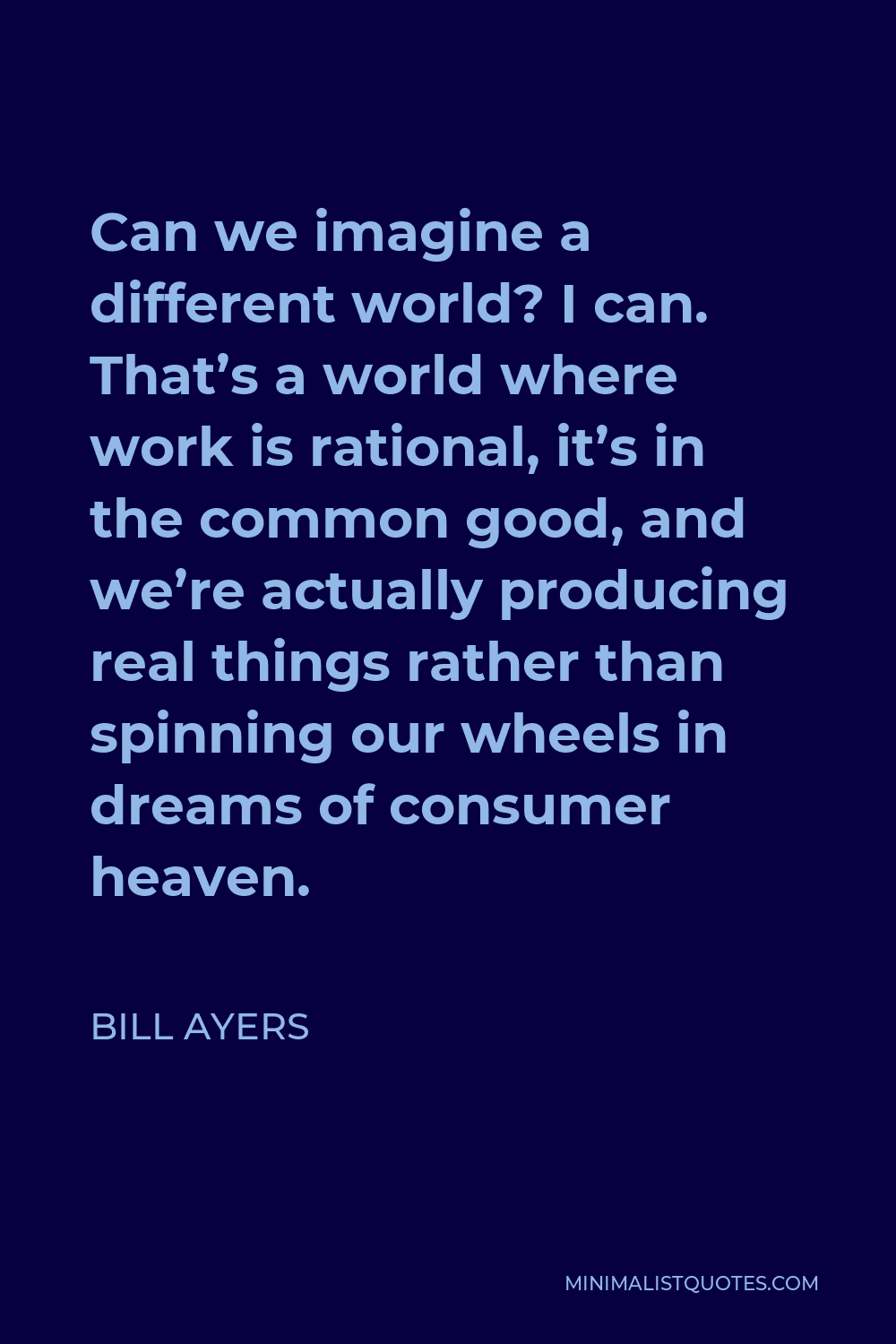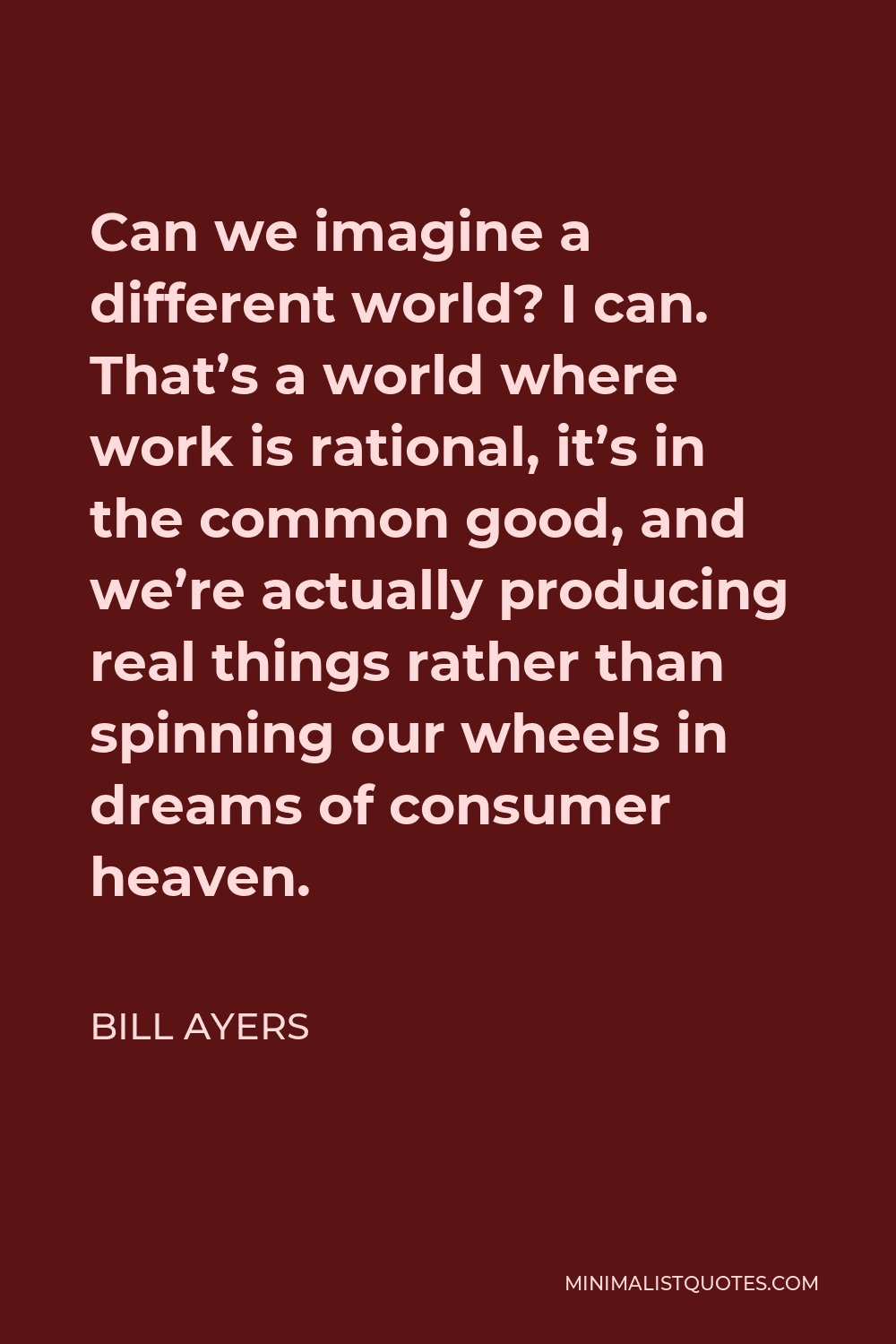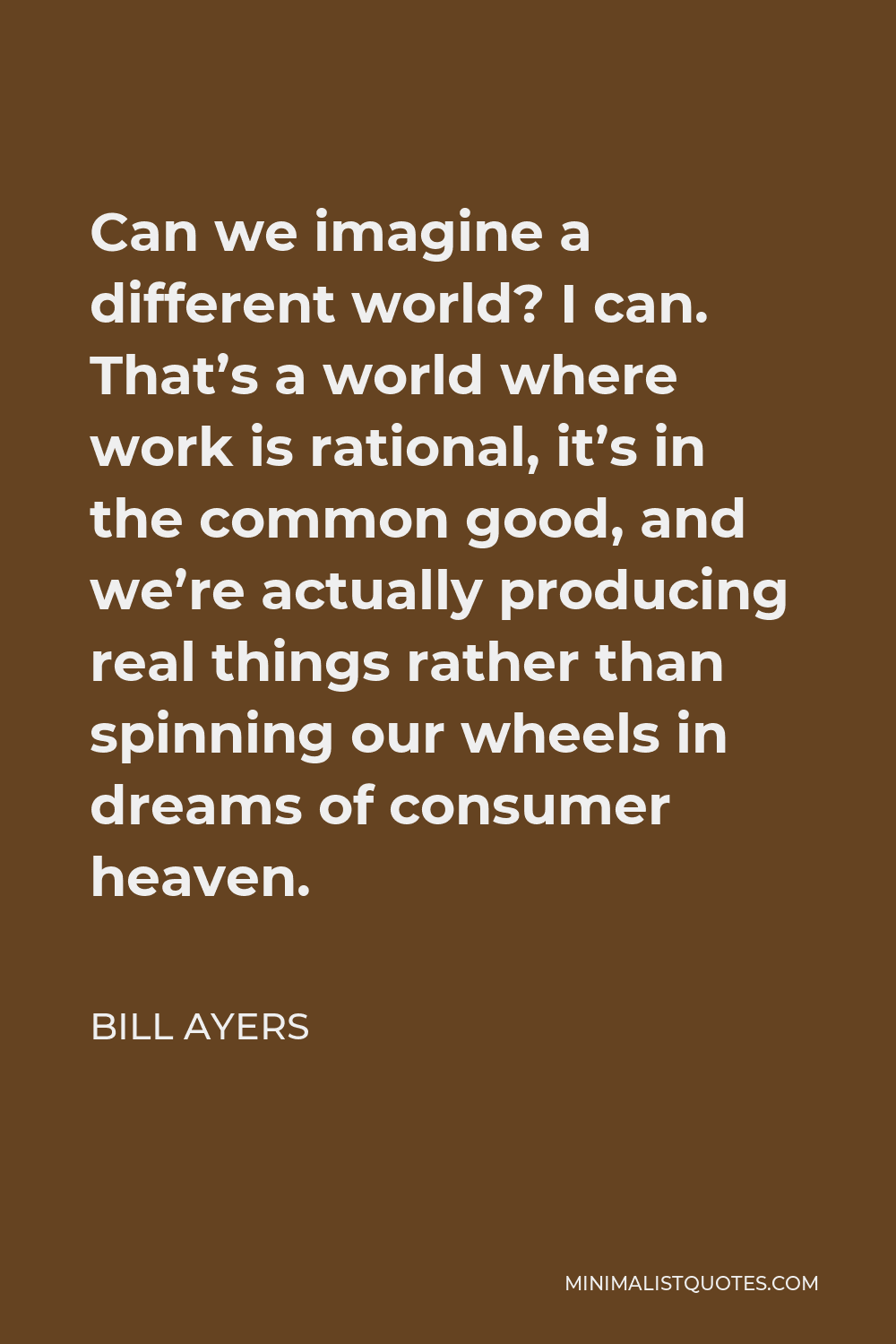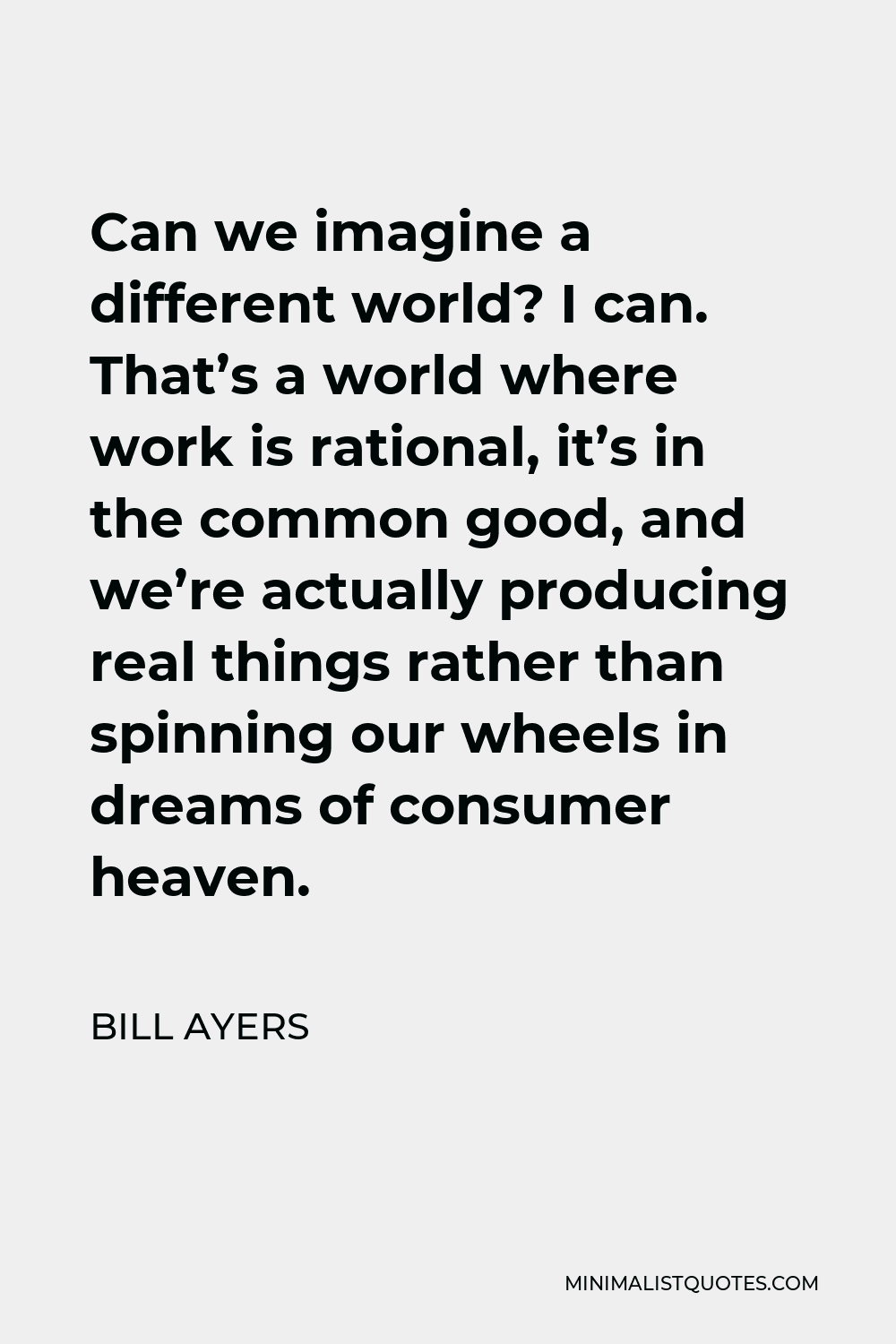[The whole first year at university] was a great time for me and great time of awakening.
BILL AYERSCan we imagine a different world? I can. That’s a world where work is rational, it’s in the common good, and we’re actually producing real things rather than spinning our wheels in dreams of consumer heaven.
More Bill Ayers Quotes
-





![Bill Ayers Quote - [The whole first year at university] was a great time for me and great time of awakening.](https://minimalistquotes.com/images/the-whole-first-year-at-university-was-a-great-tim.jpg)
-





![Bill Ayers Quote - We’re actually saying, here’s a principle that I’d like to arc toward. That’s a very different role in life. I didn’t expect [Barack] Obama to go to the root of things. I didn’t expect him to have a principled position on anything. I mean, just pay some moderate attention to the guy.](https://minimalistquotes.com/images/were-actually-saying-heres-a-principle-that-id-lik.jpg)
We’re actually saying, here’s a principle that I’d like to arc toward. That’s a very different role in life. I didn’t expect [Barack] Obama to go to the root of things. I didn’t expect him to have a principled position on anything. I mean, just pay some moderate attention to the guy.
BILL AYERS -





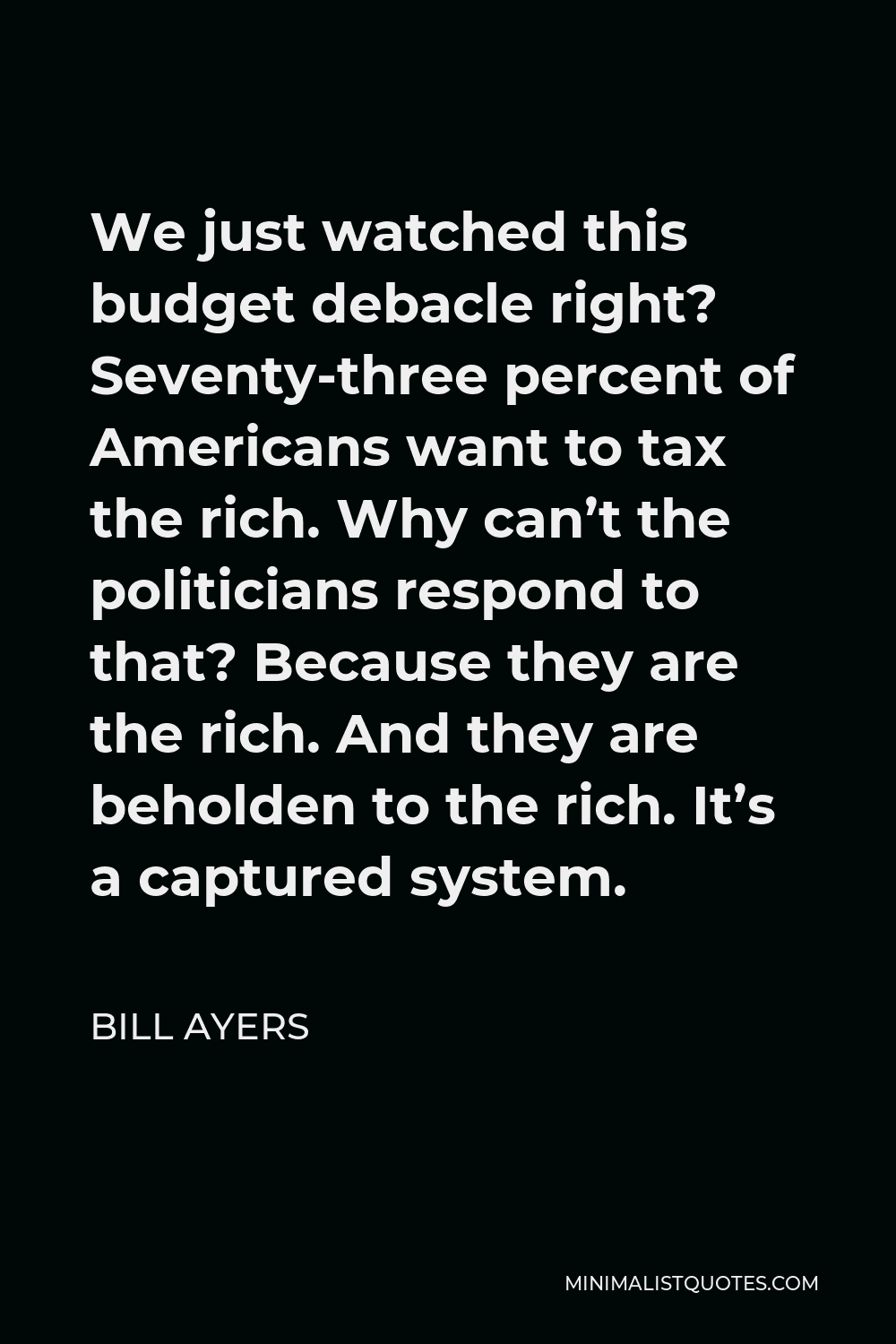
We just watched this budget debacle right? Seventy-three percent of Americans want to tax the rich. Why can’t the politicians respond to that? Because they are the rich. And they are beholden to the rich. It’s a captured system.
BILL AYERS -





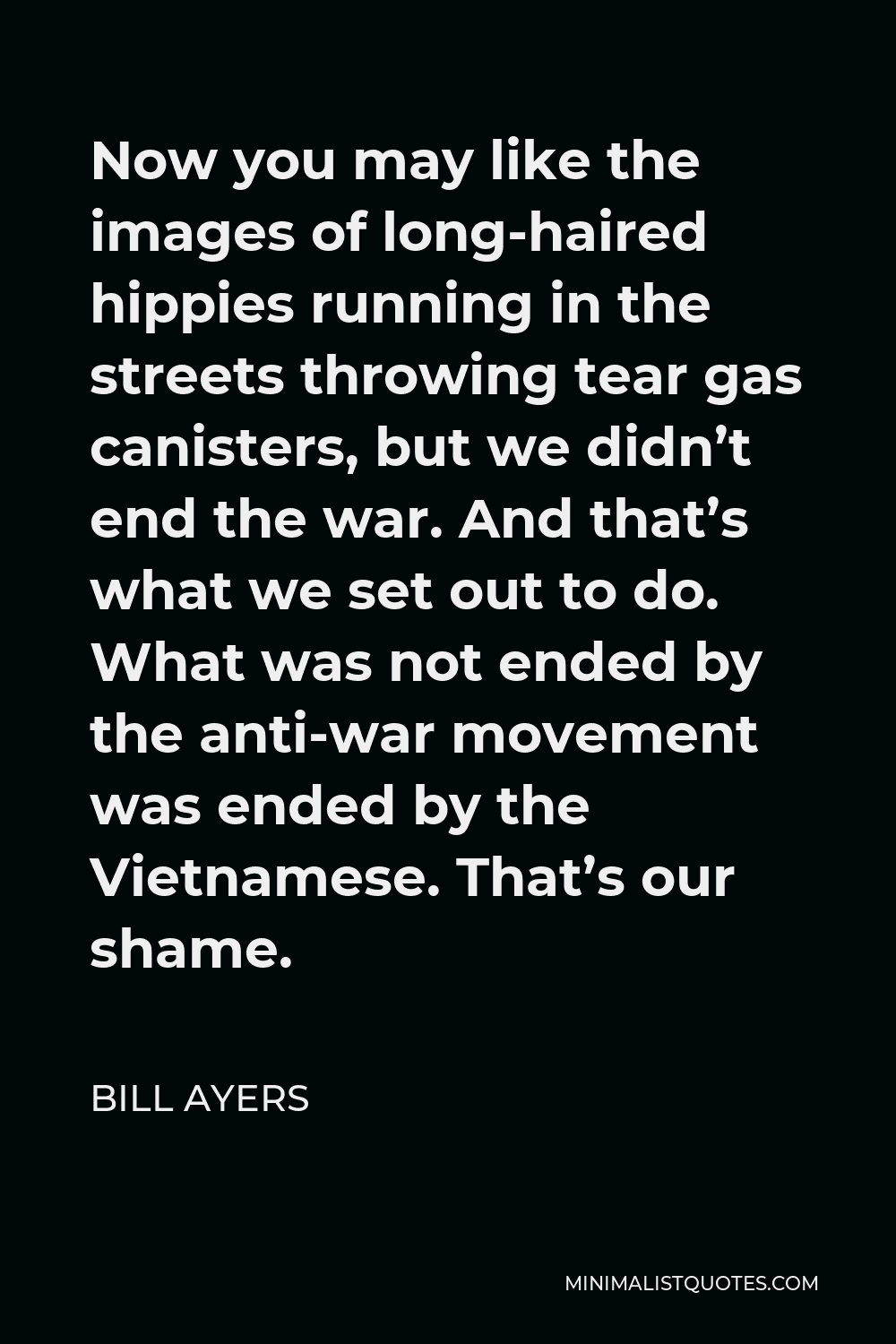
Now you may like the images of long-haired hippies running in the streets throwing tear gas canisters, but we didn’t end the war. And that’s what we set out to do. What was not ended by the anti-war movement was ended by the Vietnamese. That’s our shame.
BILL AYERS -





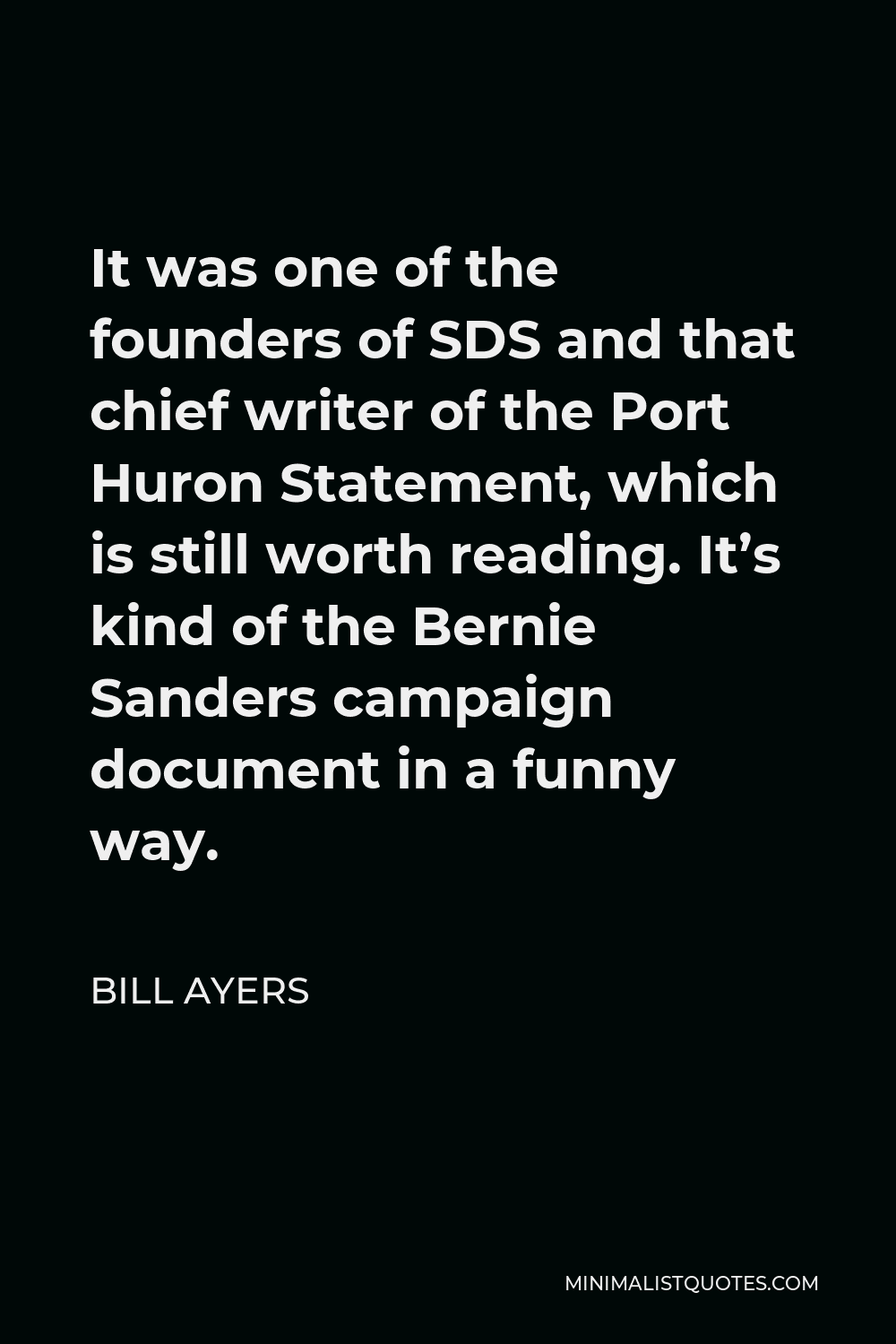
It was one of the founders of SDS and that chief writer of the Port Huron Statement, which is still worth reading. It’s kind of the Bernie Sanders campaign document in a funny way.
BILL AYERS -





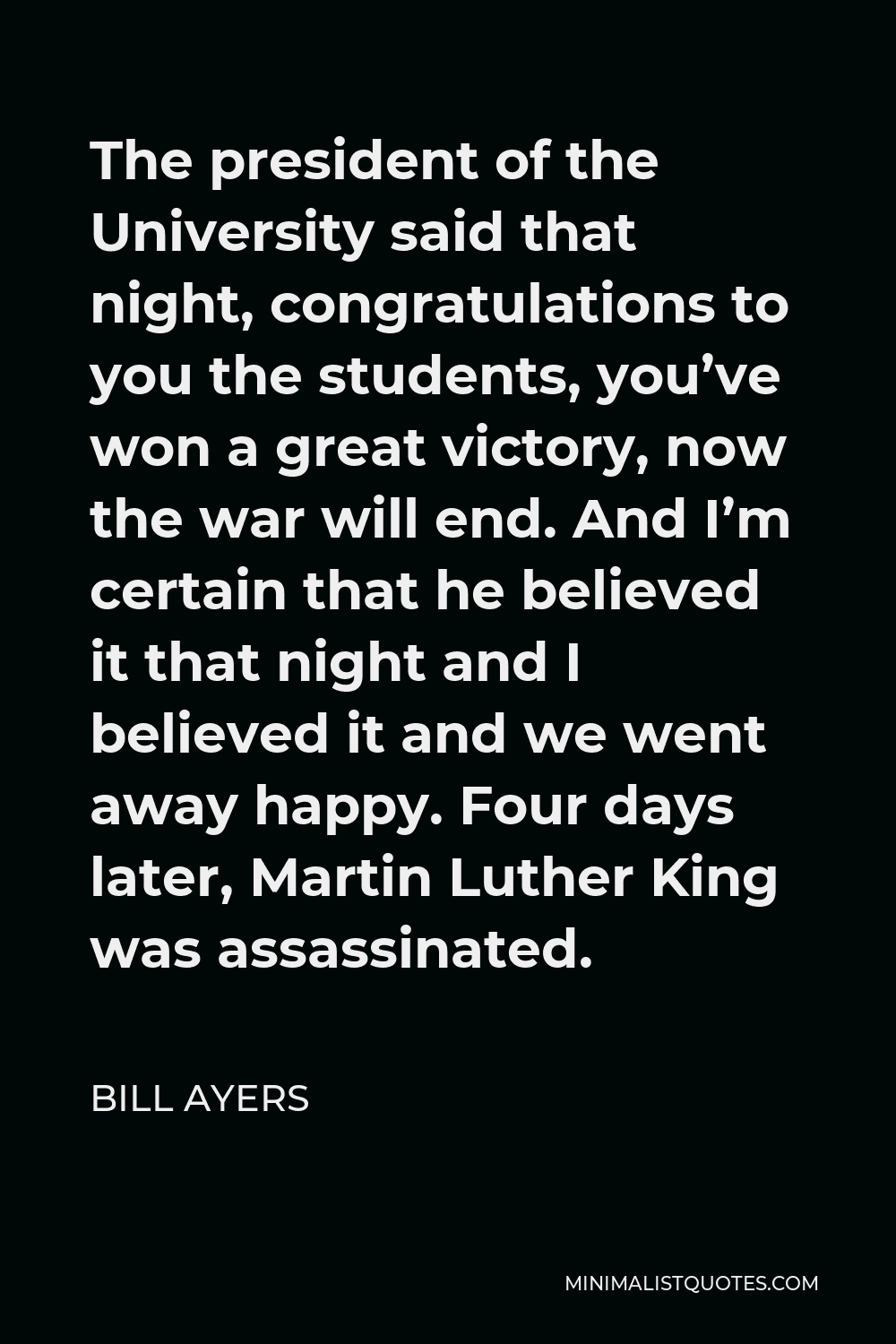
The president of the University said that night, congratulations to you the students, you’ve won a great victory, now the war will end. And I’m certain that he believed it that night and I believed it and we went away happy. Four days later, Martin Luther King was assassinated.
BILL AYERS -





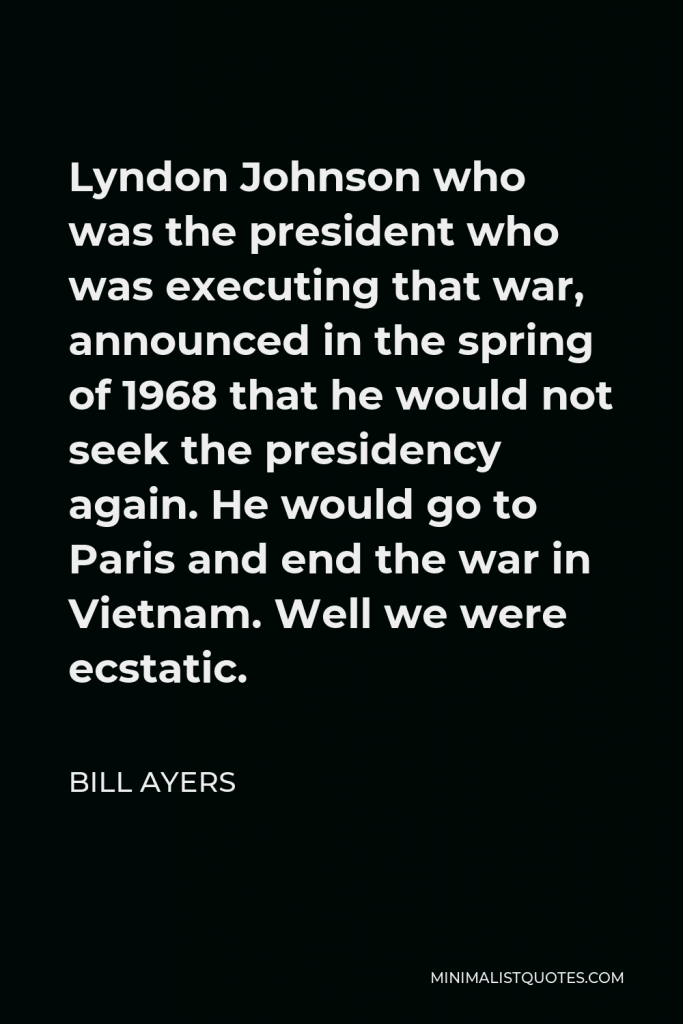

Lyndon Johnson who was the president who was executing that war, announced in the spring of 1968 that he would not seek the presidency again. He would go to Paris and end the war in Vietnam. Well we were ecstatic.
BILL AYERS -





![Bill Ayers Quote - There was a sense of palpable relief that George [W.] Bush was leaving and that the Republicans had slipped back and that was a wonderful feeling.](https://minimalistquotes.com/images/there-was-a-sense-of-palpable-relief-that-george-w.jpg)
There was a sense of palpable relief that George [W.] Bush was leaving and that the Republicans had slipped back and that was a wonderful feeling.
BILL AYERS -





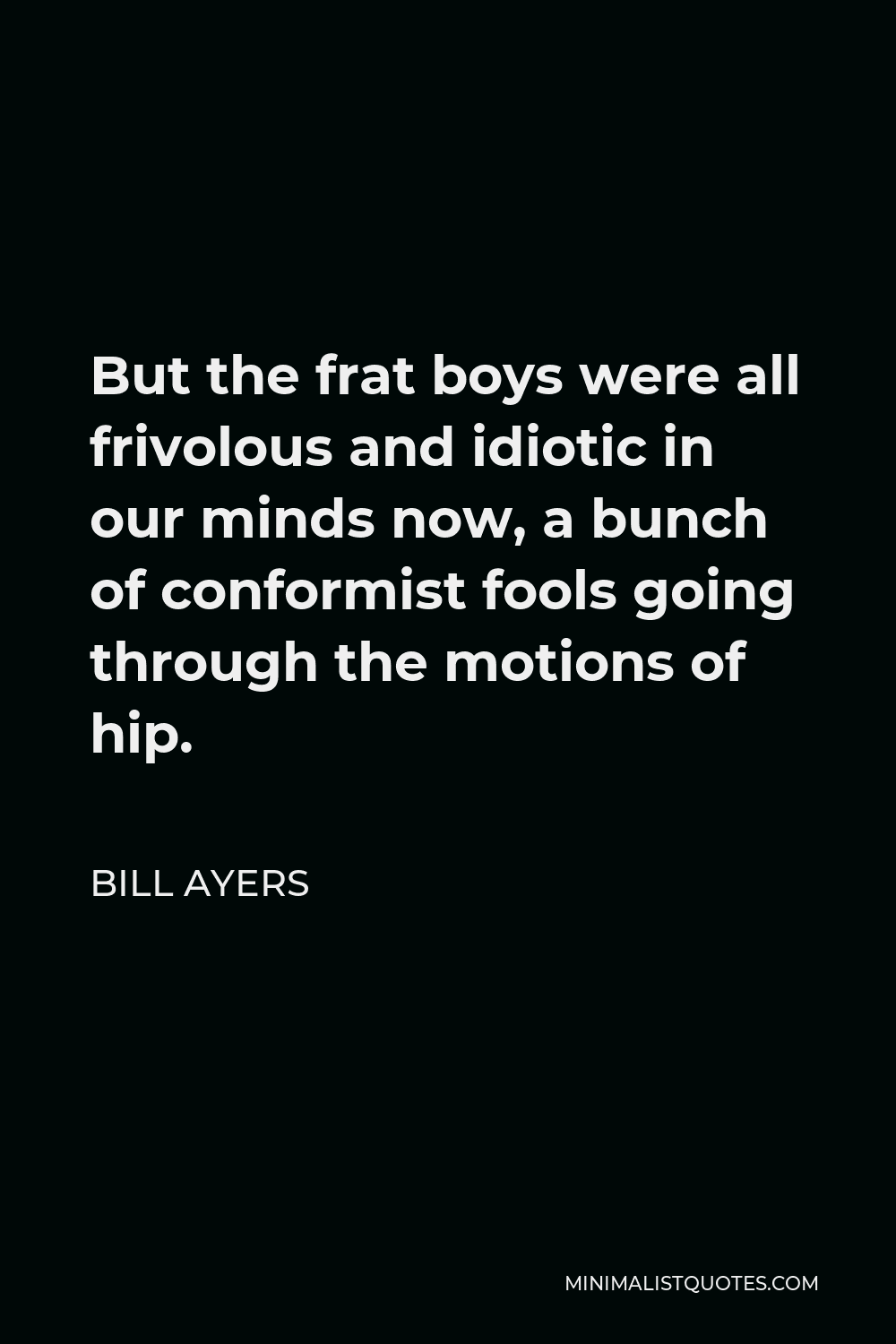
But the frat boys were all frivolous and idiotic in our minds now, a bunch of conformist fools going through the motions of hip.
BILL AYERS -





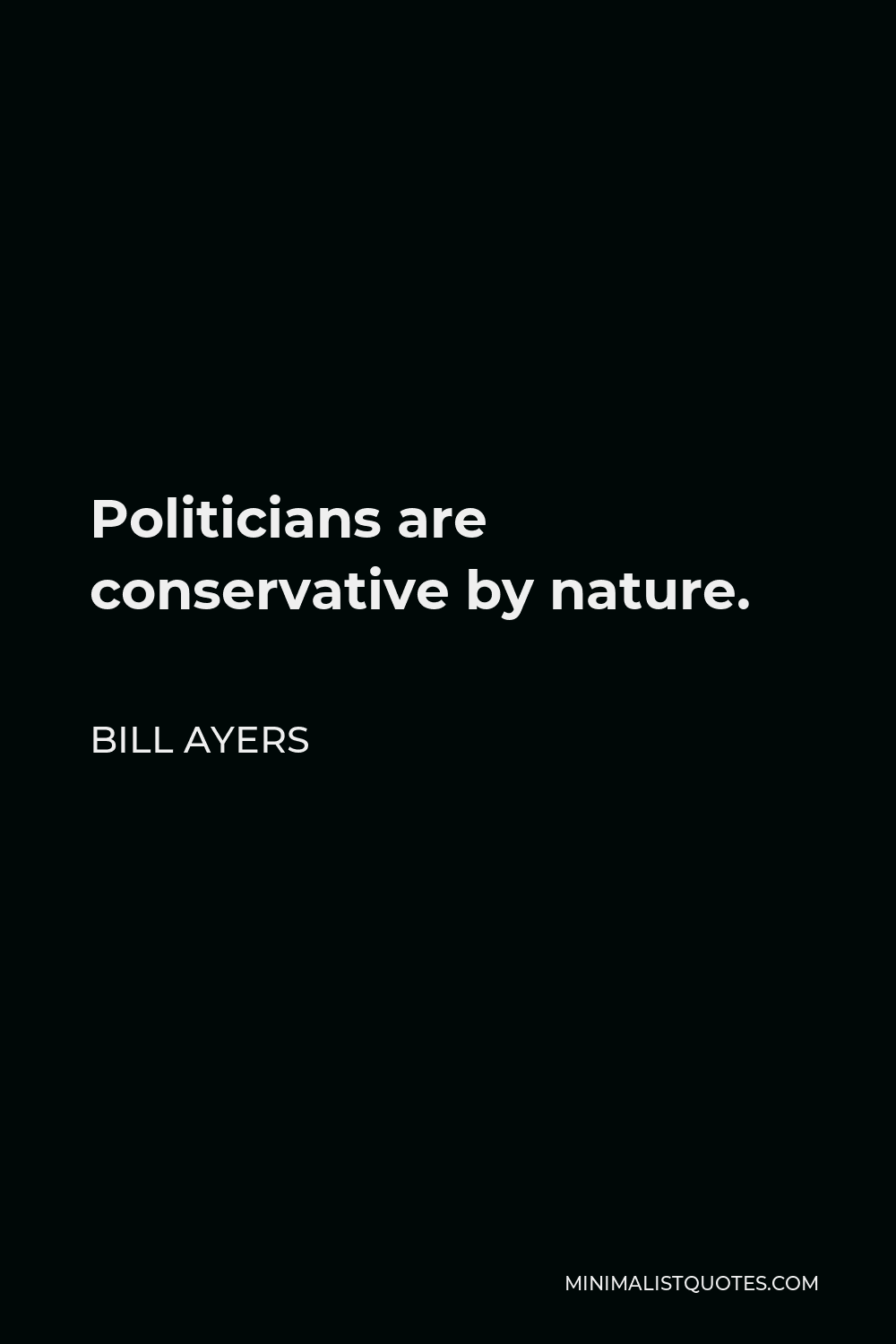
Politicians are conservative by nature.
BILL AYERS -





![Bill Ayers Quote - When [my dad] was at the University of Michigan, my mom was a social-worker. As he rose, he voted for [Adlai] Stevenson initially. Then he voted for [Dwight] Eisenhower. Then he kept voting Republican until he voted for Barack Obama.](https://minimalistquotes.com/images/when-my-dad-was-at-the-university-of-michigan-my-m.jpg)
When [my dad] was at the University of Michigan, my mom was a social-worker. As he rose, he voted for [Adlai] Stevenson initially. Then he voted for [Dwight] Eisenhower. Then he kept voting Republican until he voted for Barack Obama.
BILL AYERS -





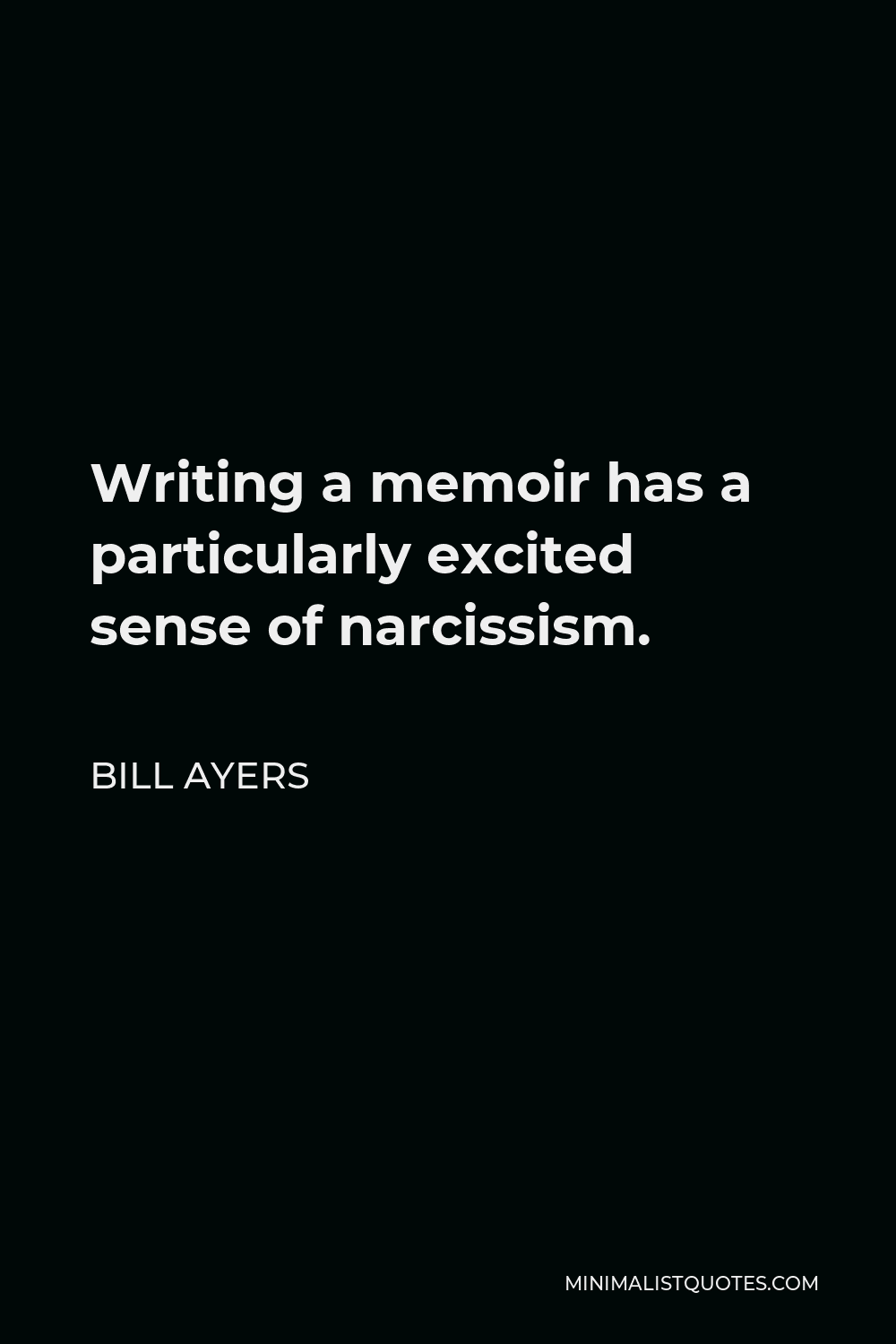
Writing a memoir has a particularly excited sense of narcissism.
BILL AYERS -





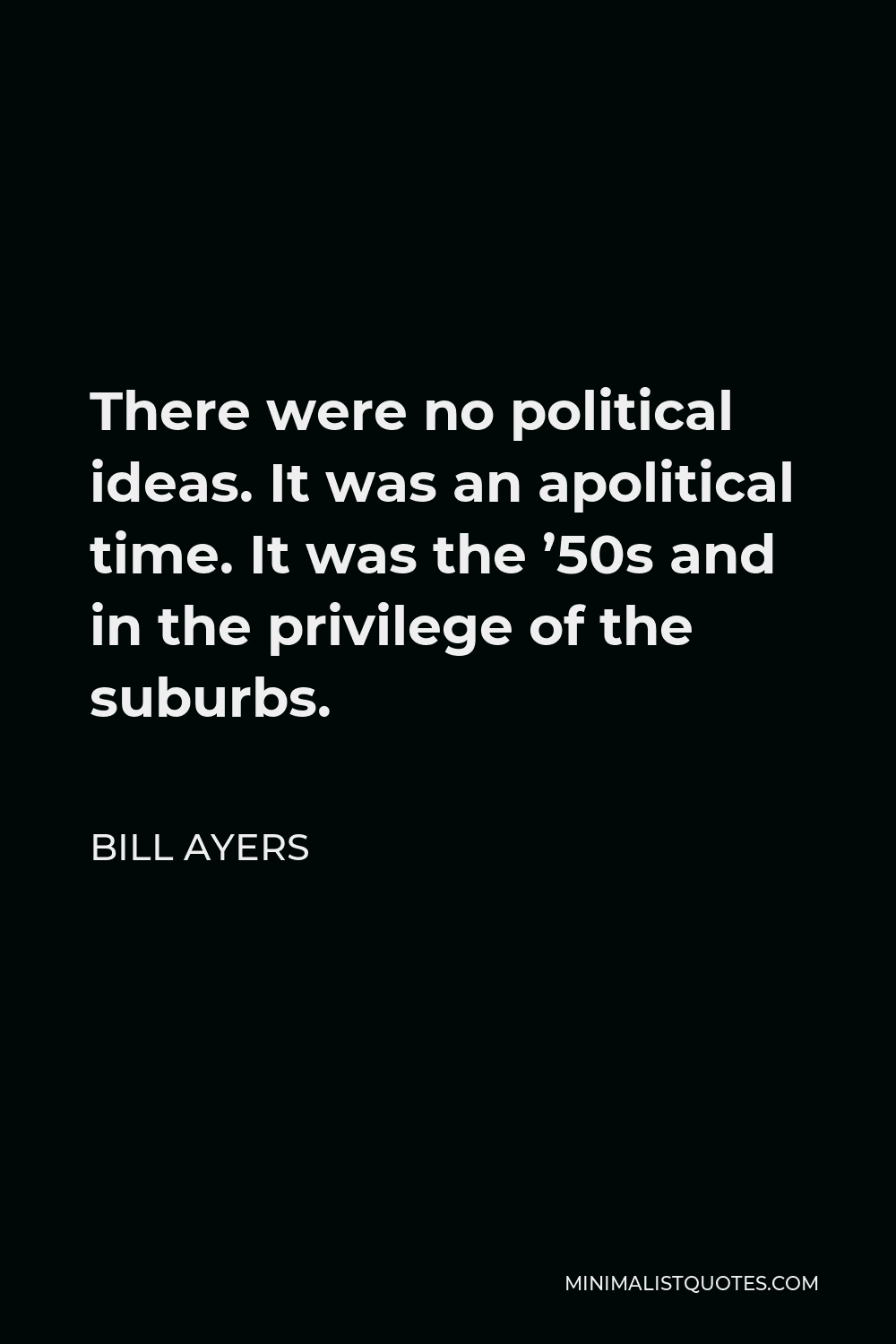
There were no political ideas. It was an apolitical time. It was the ’50s and in the privilege of the suburbs.
BILL AYERS -





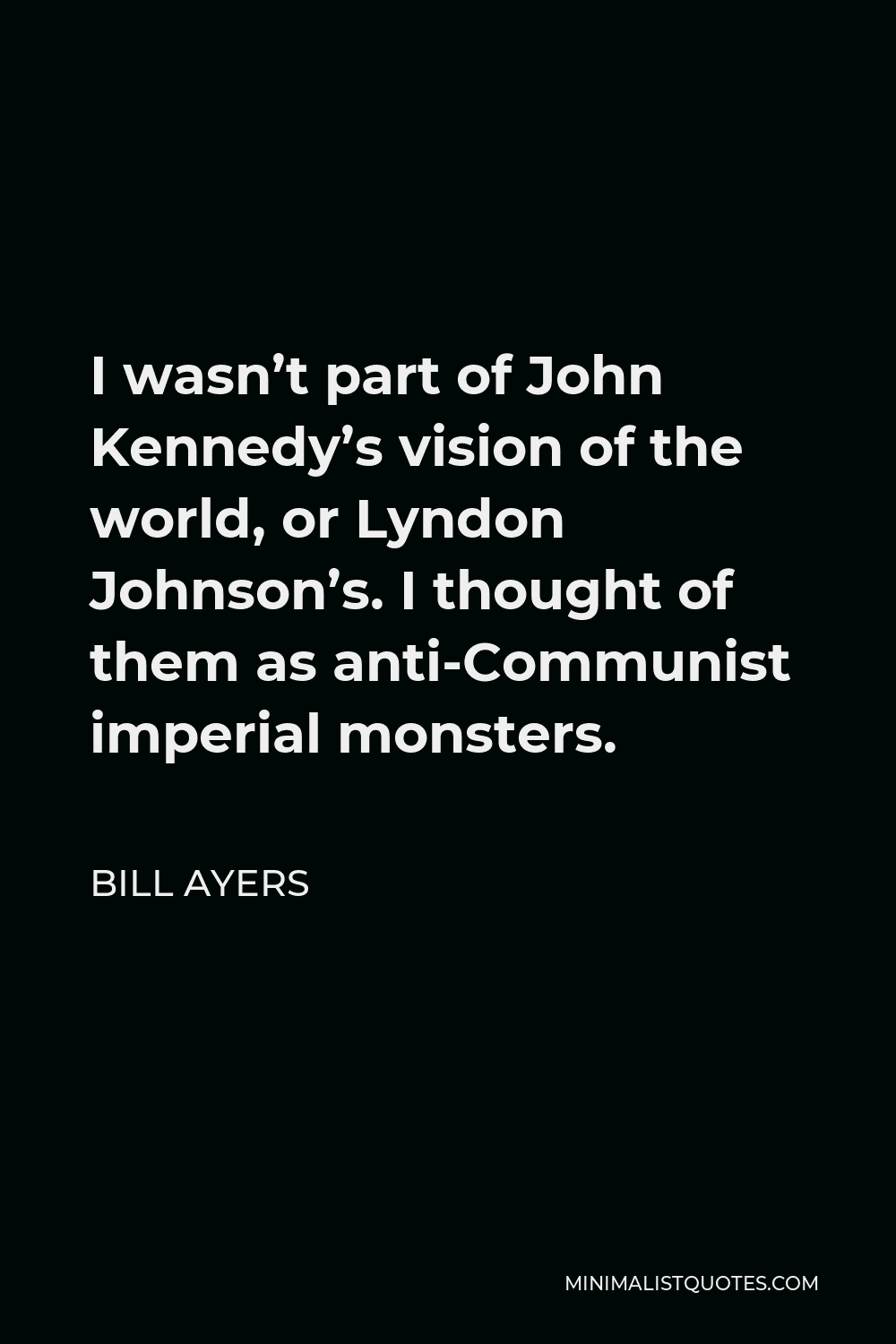
I wasn’t part of John Kennedy’s vision of the world, or Lyndon Johnson’s. I thought of them as anti-Communist imperial monsters.
BILL AYERS -





![Bill Ayers Quote - [Barack] Obama doesn’t disappoint me, because all during the campaign he said, I’m a pragmatic, middle-of-the-road, compromising politician.](https://minimalistquotes.com/images/barack-obama-doesnt-disappoint-me-because-all-duri.jpg)
[Barack] Obama doesn’t disappoint me, because all during the campaign he said, I’m a pragmatic, middle-of-the-road, compromising politician.
BILL AYERS -





![Bill Ayers Quote - [Lyndon ] Johnson was responding to a black freedom movement that was tearing the country open and he did what he had to do as a conservative politician.](https://minimalistquotes.com/images/lyndon-johnson-was-responding-to-a-black-freedom-m.jpg)
[Lyndon ] Johnson was responding to a black freedom movement that was tearing the country open and he did what he had to do as a conservative politician.
BILL AYERS
